The CBD Expert Series: Sustainably Growing Hemp & the Cannabis Industry
Some argue we're experiencing a Cannabis Renaissance. In that case, call Steve Turetsky a Renaissance man. He holds degrees in economics and biology, and has used his knowledge to grow the cannabis industry in ways—and places—not yet explored. With a background supported by a strong understanding of how both business and science work, he has made it his goal to create hemp and cannabis farms that are successful and sustainable.
Recently, CBD Oil Review's Nick Musica spoke with Steve, who is now the Managing Director at Shi Farms, to discuss what it takes to survive in the hemp industry, the unsung heroism of terpenes, and changing the conversation around cannabis.
Nick Musica (CBD Oil Review): Why don't we start with the name. Why “Shi” Farms?
Steve Turetsky (Shi Farms): “Shi” stands for “sustainable hemp initiative.” We chose an acronym and we chose it for a couple of different reasons.
As you know, hemp is an incredibly sustainable crop all on its own. Through research we're now finding out how sustainable it is. It uses less water than cotton, it grows faster than trees. It's incredibly enriching for the soil and can even suck up bad pollutants from the soil. It fixes carbon, all these different kinds of things, and we really wanted to showcase the plant itself as the leader of the business.
The second thing was how can we use sustainable practices to increase the sustainability of the plant itself? This was a pie in the sky dream when we first started the business. I quickly learned as an entrepreneur that you have to make money first before you can buy a bunch of toys and by toys, I mean windmills and solar panels and crazy water recycling systems.
The investors looked to me, and patted me on the back and said, “How about you sell some hemp first and then we can buy sustainability toys?”
You mentioned how well hemp sucks things up from the soil—can you explain that?
Sure. We know that it can suck up pesticides, which is a pro and a con if you're growing it for consumption at the moment, but it's a good way to take out pesticides and bad pollutants in the soil because. In layman's terms, it will actually eat everything. Then, you can cut that crop down and till it back in the field and it'll basically render those particles differently as it metabolizes them. That's one of the really cool things that it does as a bioremediator.
They've even planted hemp over in Chernobyl to try to remediate the nuclear activity of that soil.
Given these facts, it seems even more important for CBD buyers to look for contaminant testing and do their research before purchasing.
The way I like to think of it is that it's not necessarily on the consumer so much as it is on the purveyor of the products. We really need to regulate from within before the FDA is regulating because it is the wild west.
It's a market that's being less regulated than we'd like, but if we can put our best foot forward and get consumers the information they need and empower them, what you're going to see is honestly, that a lot of cannabis products typically are held to a higher standard than a lot of normal produce products, like a head of lettuce. That whole foods contain more pesticides than a smokable hemp flower, or if you look on the cannabis side of the things, like the marijuana side, you'll definitely see that, because these regulations have been so strict.
We really think it's cool that although the regulations are strict, and some people have a problem with them, or its hampering growth, I actually like it because we're being held to a higher standard than a lot of other produce, which is a great place to be. Let's put the best foot forward on something that has a battle to fight on the public opinion side.
What you're going to see is honestly, that a lot of cannabis products typically are held to a higher standard than a lot of normal produce products, like a head of lettuce.
So hemp, in a way, is comparable to produce?
Absolutely. We have to treat it like traditional agriculture, especially on the hemp side. Just today, the USDA said they're going to offer federal crop insurance for hemp crops, which is incredible. It's an amazing opportunity for farmers and a huge risk mitigator. It really puts us in a category of agriculture. Hemp is corn now. It needs to be viewed like that by all agencies and that'll really help public adoption and also sustainable industry growth.
Have you been able to buy any of those sustainability “toys” so far?
That part of the mission is something that's long term and in process and we're excited that now going into year three, that we actually have an opportunity to start being sustainable in our own farming practices. If we can bring that to the table and supercharge that with the way that hemp is already a sustainable crop on its own, it would be great synergy.
Virtual tour of Shi Farms, where sustainability is the focus from plant to farming to business practices.
So, “shi” represents the sustainability of hemp itself and sustainable farming practices?
And the last piece of sustainability is around sustainable business practices and it's how we founded the business and how we operate today. What I think is a big part of our success so far is just doing the right thing, creating partnerships with other people in our vertical, other companies in our vertical that are doing other great things and running high-integrity businesses. We have to work together to make this happen. I feel like cannabis at large, in my prior experience with cannabis, is a very me-me-me type of industry. There's so much opportunity. People know there's a huge monetary upside here. They want to get involved. They want to grab that.
If they grab it, it's the wild west.
How is Shi Farms different than these other businesses?
We wanted to reverse that trend and say, “Hey, let's reach out to farmers and cooperate. Let's reach out to extractors and partner. Let's reach out to brands and work together to get consumers the best information.”
What I think is a big part of our success so far is just doing the right thing, creating partnerships with other people in our vertical, other companies in our vertical that are doing other great things and running high-integrity businesses.
How can we partner along the supply chain rather than trying to eat it all in order to create a sustainable industry network that can help the industry grow in a positive, forward-thinking manner, because the industry is growing so fast. We have a huge responsibility as we make history here, to bring a new crop to market that hasn't been around for so many years. There's an incredible responsibility to do that right and showcase to legislators and to the public that we're taking care of it in-house from the inside-out.
In terms of sustainable business practices, what are current and future practices you are most excited about?
In terms of business practices, like I said, partnering along the vertical supply chain is so important to us. When we got here and said, “Okay. We're going to do hemp farming,” we wanted to make sure that we could grow the best hemp possible.
How we got there was our former experience on the marijuana side. We worked at a company that is fantastic, but one of the things that hampered them for a while in the early days was they tried to do everything themselves. They wanted to be the best chocolate company, the best drink company, the best topical company, and it's really hard to do everything with excellence. You end up being average.
We said to ourselves, “How can we be the best at something? Let's find out where we can make our mark and let's just do that.”
Then, if we want to create more business opportunities, if we want to continue to service the industry in a greater capacity, let's partner on the extraction, for example, or let's partner on the retail product. That way, we can do what we do really well. We find someone else who does their aisle of the industry very well, and you join forces, and you create joint ventures where both companies have a stake in the game to produce the best quality that they can in their specific role. Then, the output product is extraordinarily better.
What are the standards you look for when you're looking to vet partners to bring the best product to market?
That's a great question. In our industry, it's really simple. Can I go tour your facility? Can I actually meet the employees on the ground that are taking care of your business? That's a huge gatekeeper. A lot of people won't let you come and see their facility, or you get past that first intro call and there's no follow up email. People will just disappear.
Does the person come to the table? Does the business even have a vettable facility that they're willing to show you? If you get past that, that actually irons out a lot of potential situations that you don't want to be in.
Then, once you're at the table, can you look the person in the eye and have a real conversation? Can you identify how they run their business and are they really forthcoming with how they're running it? Another mantra Drew and I go by is if someone's calling themselves an expert, or we're the best at this in the world, they're probably not because this industry is way too young to have a perfect person for that thing.
Have you ever come across a partner that turned out to not be what you were hoping?
Yeah. You never get it right the first time.
Look, we've learned these lessons because we've made mistakes, and we've met the wrong people and you just have to keep swimming in this industry. Right? Just keep trying and keep living by your values and eventually, those people find each other.
If someone's calling themselves an expert…they're probably not because this industry is way too young to have a perfect person for that thing.
That's one of the ways you and I found each other— at Trailblazers in Utah.
Yeah, industry conferences are a great way to meet people.
How are farmers in the industry managing all the growth and demand for product?
To sum it up where the industry is at so far, is there's a lot of product and byproduct, I mean seeds and genetic material on the market that is uncertified, non-feminized, unstable types of seeds that traditional farmers aren't used to planting. When they're harvesting, they're trying to have a stable phenotypic profile of that plant. What I mean by that is the plant is the same height every time, plant to plant. The CBD content is the same. The branching is the same, the way they respond to different pest pressures. You want to have a crop that's stable and consistent, so that you can predict how the crop is going to do.

Only female cannabis plants produce the flowers that contain the most potent amounts of THC and CBD. Feminized cannabis seeds guarantee the plant will be female, and of the most value to the grower.
That's so important, especially as the hemp industry starts to scale from tens to hundreds to thousands of acres. That's an area we've been focusing on. Now that we've figured out the farming a little bit better, how can we supercharge the genetics on the backend of this business to help ourselves grow even better plants and also help other farmers grow better plants?
How has that process of producing a hemp plant with ideal genetics gone?
It's taken a bunch of different forms. It's taken a lot of crossbreeding and hybridization techniques and feminization techniques at the farm in Pueblo.
We've also been involved with some other groups, running around the world looking for wild cannabis genetics from which we can then harness those superpowers.
Superpowers?
Things like auto flowering, things like drought tolerance, things like Type 4 plants, which have high-end CBG ratios. We're finding different things and different nuances of this plant across the world and seeing if it's possible to breed those traits into big agricultural hemp varieties. We're finding different things and different nuances of this plant across the world and seeing if it's possible to breed those traits into big agricultural hemp varieties.
Tell me about a memorable experience you had while traveling and doing this work.
A funny story that comes to mind is that I've blink, I drink a coffee, and next thing I know, I'm in Kazakhstan in a line of six armored Tahoes trying to cross into the border of Kyrgyzstan, which is like a mountainous country to the south of Kazakhstan, and this is all central Asia, east or west of China, and we end up meeting a guy on horseback that takes this caravan of Tahoes down into a valley.
Next thing you know, we're in this ridiculous field of wild hemp: 12-foot tall plants, growing up a gully riverbank up the side of a mountain. It was absolutely ridiculous, like stunningly beautiful. You see these alien cannabis plants, and it just makes you pause and just think about how crazy it is that this plant has grown on six continents.
It's native to many of them, and they've tried to eradicate it for decades and decades. Now, I'm in that part of the world, with the Soviets, and to see these plants being so resilient and thriving in an area where they've been attacked, cut down, tried to be eradicated, and it's not possible, shows you that there's something special here.
With the plant grown, transported, and crossbred across so many different continents, is there really such thing as a true “Indica” or “Sativa”?
They've done a bunch of studies that show Indica and Sativa type, like subspecies are almost nonexistent now over hybridization.
A lot of things are hybrids. I think where we need to go is a greater education with bud tenders and then ultimately greater education with consumers around terpenes and whole plant synergy and how the rare cannabinoids and terpene profiles dictate the “head high” or the “body high.” We know that's already a lot of the case.
Even in your Indica-dominant, or your Sativa-dominant plants, you have different terpene profiles which are most likely guiding the effects. Then, you can get into the whole thing about placebo too about you tell someone that they're going to be able to be more creative, or they're going to be able to go snowboarding better on this type of Sativa plant, or they're going to be able to go to sleep on this one. It definitely plays a role. They've shown placebo's a totally a real thing.
Getting past the nomenclature, getting past the anecdotal and getting to hard data regarding this plant synergy, the terpene synergy, I think is going to be the way to go, and it's already in process, which is good.
What are terpenes?
Terpenes are a chemical group based on the chemical structure of the molecule, so terpene are that overarching theme. Cannabinoids are actually terpenes in themselves. That's one thing that I like to tell people.
Terpenes are also something that we interact with on a daily basis. We know that they work and people can really relate to the fact that if you scratch an orange peel, and you smell it, it gives you this little burst of energy, this awakening feeling and this freshness. That's the aroma therapy technique, and that's caused by terpene. Lavender is a calming herbal smell that's coming from linalool in that plant.
We know that there's consumer anecdotes already with terpenes. Taking those anecdotes and applying them to, “Hey, I'm going to consume this at even higher concentration along with these other compounds like cannabinoids that are already doing good for me in other ways.” That's powerful.

Linalool is a terpene found both in cannabis and lavender. It's known for its anti-anxiety, stress relieving, and relaxing effects.
How have the emerging benefits of terpenes changed the conversation around cannabis and CBD?
I don't know if the retail-to-consumer conversation is going to change any time soon. The nice thing is the business-to-business conversation is already there. Even on the CBD side, when we're selling oils to clients, they're asking to see terpene profiles because they want to have an idea.
Right now, it's more for marketing. I can call out these terpenes, but they're thinking in a way about whole plant synergy and what kind of effect is this plant going to bring? Let me do some research on myrcene. Let me do some research on a humulene and see what these terpenes do.
How about for cannabis in general?
The conversation's definitely happening on the smokeable cannabis side, too. In the regulated markets, you're definitely having that conversation. With all of this competition plant-to-plant and the price of a pound of cannabis going down dramatically in some states, any way you can show that your plant is better, is going to help you. And terpenes are that next step.
“Hey, let me show you my terpene profiles.” Those conversations and those requests are happening. Because the B2B environment is going that direction, I think that it will trickle down to B2C and whether those people adopt or not, and whether that education can really take hold, we'll have to wait and see.
A nice way to think of it is in the context of the CNN special that happened on CBD a couple of years ago. It really jettisoned the hunger for education about CBD. Maybe as we get some more research in the medical community that starts talking about CBD plus terpenes, we'll see that same jettison of research and academic material into the public eye.
With all of this competition plant-to-plant and the price of a pound of cannabis going down dramatically in some states, any way you can show that your plant is better, is going to help you. And terpenes are that next step.
How do you think studying these individual elements will affect cannabis and CBD in the future?
It's this idea of recombination science. As we start to learn more about the plant, we get better at extracting precise molecules even down to individual terpenes. How can you take those molecules, recombine them at ratios that may be more therapeutic
Basically, if we can cut down all these molecules into their individual selves, put them back together in ratios that may be even more beneficial, with additional studies, than the natural compounds that are naturally occurring in a plant, maybe we'll come upon something that has an even greater therapeutic value.
Or, we may find the opposite, that the way nature intended is the best way. That's what research is figuring out right now. We know pretty certainly, with some studies that have come out in recent years, that taking CBD just by itself is not as effective. Or, it's more effective, but in a very small therapeutic window, like a very specific dose.
It's actually less effective than taking a whole plant extract that has all of these different things, terpenes and flavonoids and rare cannabinoids all acting together in a way that we don't fully understand yet. That's part of the issue, but that whole plant extract might actually be more therapeutic.
Or, what we've seen is dose dependency. The more you take, the better it does and it eventually tinkers off to a plateau. But it can do more when you take more, whereas isolate has a very isolated range.
Those studies are happening now and we're seeing those types of results. I think you and I are both in the same presentation in Utah actually where Dr. Jeff Chen was talking about his research on isolate versus full spectrum extract in rats for inflammation and pain. That was pretty astounding to see that.
Dr. Jeff Chen, founder and director of the Cannabis Research Initiative at UCLA, giving a Ted Talk in 2018.
Yeah. I was just reliving that presentation as you were talking.
It was fascinating. And some of the first studies are coming out of America, which is amazing, right? Because for a while, the U.S. was succumbing to its own issues with scheduling and Europe and Israel and everyone else was doing the research. It's amazing that we're starting to have cannabis research being done at UCLA Medical Center. How amazing is that?
Yeah, the narrative has changed. We need to continue to listen to these anecdotes and do these studies to keep the conversation open.
Definitely. That honestly dovetails back to where we started with sustainable business practices.
If the industry grows out of that legacy, and starts to have a more scientific and more medically inspired conversation, and in turn run their businesses like real companies, not the basement grower of the 90s, we're going to move a lot quicker and we're going to change a lot of opinions faster.
What haven't we talked about that really excites or inspires you as someone in the hemp industry?
I think something that we didn't touch on that makes me want to get up in the morning and get out of bed and get to work is how amazing the hemp industry and the commercialization and the scaling of the hemp plant has been for American agriculture.
We have farmers that are dealing with tariff issues. They're dealing with trade war issues. They're dealing with competition and commoditization of normal staple crops like hay and corn and soybeans and all those different things. It's to the point where farmers are just losing money on a year-over-year basis, and we're holding that up with subsidies, but there's got to be a better shake for farmers.
Hemp has been this breath of fresh air. That's not me saying that. That's me talking with farmers in our cooperative and on our team that are saying how amazing it's been. And it's been a slow process because it takes time to learn how to grow a new crop at scale.
That's some of the stuff that we're working on, but the fact that they even have this opportunity to get involved with the new booming cash crop that obviously is commoditizing too, but is a much higher value crop than say, something like corn or soybeans, they're ecstatic. Seeing that excitement, seeing that rejuvenation of their mindset about agriculture, is amazing to watch happen.
Hemp has been this breath of fresh air. That's not me saying that. That's me talking with farmers in our cooperative and on our team that are saying how amazing it's been.
Because we've definitely scratched surface with CBD, and it's a thing and we're all doing and it's happening now, but there's new cannabinoids coming online. There's a thousand different industrial applications where you can grow a more technical hemp rather than a therapeutic hemp for paper, plastic, textiles, you name it, hemp can probably assist it in some way.
Those are the opportunities that don't even have a market demand for yet. There's an unlimited amount of novel ideas and businesses that can be created around those concepts. Tons of time for farmers to get involved. Tons of times for business people to get involved.
What advice would you give to the novice hemp farmer who wants to start growing on their own?
Use a lot of caution as you move forward, get to know people, go tour farms. We have an open door policy, come visit our farm and check it out and learn. We want people to set themselves up for success.
You should start with 10 acres. It's better to go slow and slowly learn this than just jump head first. It is not just putting seeds in the ground and letting them go. It's pretty rigorous, manually intensive. It's a tough crop. Start small, start on a small set of acreage, get to know the plant, get to know how it grows, get some success under your belt and then sustainably grow that business out over time because there's got to be opportunities, right?
A real look at Shi Farm workers transplanting young hemp plants.
Seed and genetic procurement is the biggest thing that's going to lead to success or failure. Get that stuff right first, and make sure you have your capital acquired and established before you start running your business.
It seems like such a basic idea that you have the money set aside before you start the business, but sometimes people just haven't prepped for how expensive this can be. Making sure you're in a situation where you're going to invest in this because like I said, it's not as easy as putting seeds out there and watering them. We have an open door policy, come visit our farm and check it out and learn. We want people to set themselves up for success.
Do you offer tours of your hemp farm?
Yeah. We have an open door policy because we're trying to create that kind of high-integrity, high-visibility conversation in the industry. You can reach out to us, and we're happy to show you around the farm, take you into the fields, learn about the plants because we want people to see this happening.
We can build relationships and start to open source a lot of this hemp cultivation knowledge because it doesn't have to be secretive. It doesn't have to be based in cannabis techniques that hide in the shadows.
This needs to get out there, so we can all grow it better, and there'll be more opportunities the better we do it.
More Expert Series Interviews
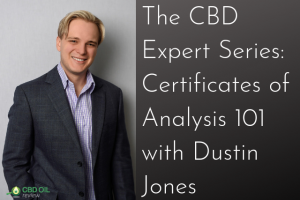
The CBD Expert Series: Jackie Bowen on Mislabeled & Misleading CBD Oil
Read More
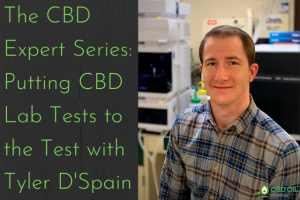
The CBD Expert Series: Putting CBD Lab Tests to the Test with Tyler D'Spain
Read More
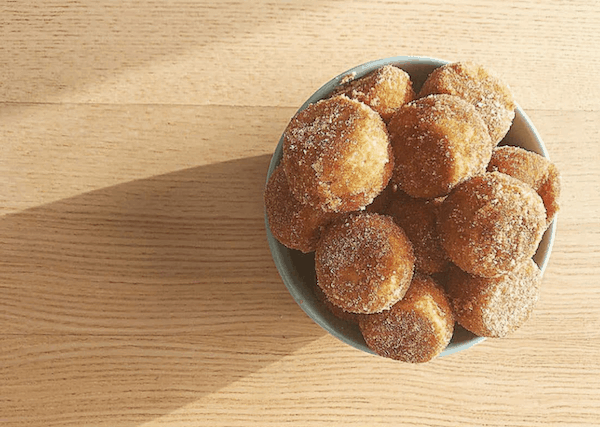
MasterChef Nick Nappi's CBD Apple Cider Donut Hole Recipe
Read More
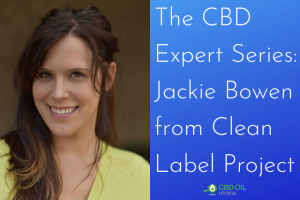
The CBD Expert Series: Jackie Bowen from Clean Label Project
Read More

The CBD Expert Series: Certificates of Analysis 101 with Dustin Jones
Read More
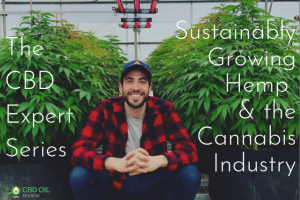
The CBD Expert Series: Sustainably Growing Hemp & the Cannabis Industry
Read More
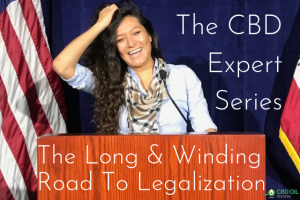
The CBD Expert Series: The Long & Winding Road To Legalization
Read More
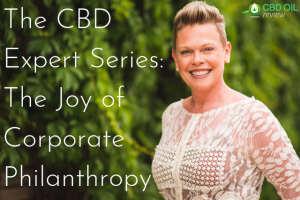
The CBD Expert Series: The Joy of Corporate Philanthropy
Read More
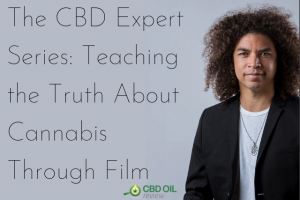
The CBD Expert Series: Teaching the Truth About Cannabis Through Film
Read More
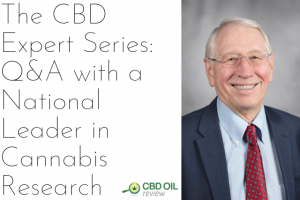
The CBD Expert Series: Q&A with a National Leader in Cannabis Research
Read More

The CBD Expert Series: Sexual Health and Pleasure with Sex Educator Kiana Reeves
Read More
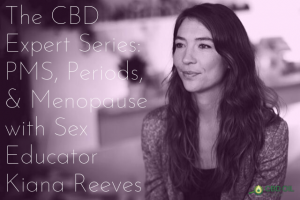
The CBD Expert Series: PMS, Periods, & Menopause with Sex Educator Kiana Reeves
Read More
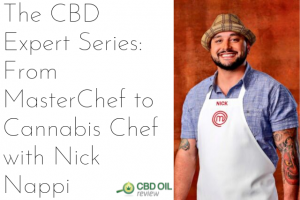
The CBD Expert Series: From Masterchef to Cannabis Chef with Nick Nappi
Read More
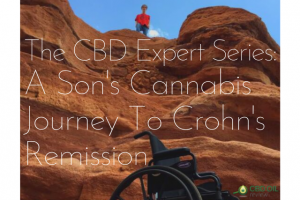
The CBD Expert Series: A Son's Cannabis Journey To Crohn's Remission
Read More
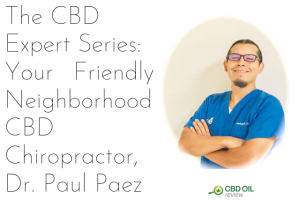
The CBD Expert Series: Your Friendly Neighborhood CBD Chiropractor, Dr. Paul Paez
Read More
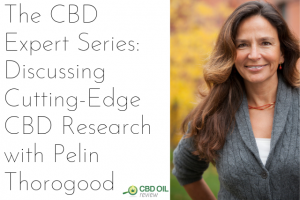
The CBD Expert Series: Discussing Cutting-Edge CBD Research with Pelin Thorogood
Read More
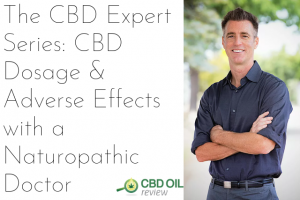
The CBD Expert Series: CBD Dosage & Adverse Effects with a Naturopathic Doctor
Read More

The CBD Expert Series: Talking Drug Tests with a Lab Tech
Read More
Opinions expressed in this article are those of our guest (the interviewee) and not necessarily of CBD Oil Review.
6 Smart Questions to Ask BEFORE You Buy CBD
Get the Ultimate CBD Buyer’s Guide and you won’t look at CBD the same way again!



 search
search